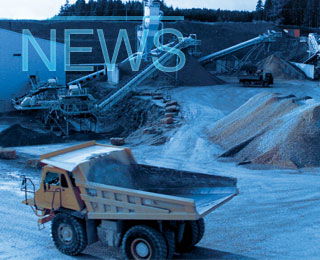Cemex further demonstrated its commitment to sustainable business practices in 2016, investing more than US$50m on projects and improvements in cement plant operations and other facilities to help reduce environmental impact and conserve nearby wildlife.
Cemex spent millions of dollars at its cement plants in 2016 to make changes benefiting the environment. Four cement plants – Brooksville, Miami, Clinchfield and Victorville – achieved the ENERGY STAR Certification from the US Environmental Protection Agency for 2017. Last year, all active Cemex cement plants in the US achieved the Wildlife Habitat Council's Conservation Certification, and several sites in California are currently working to attain that goal.
"At Cemex, we are committed to building a better future for the communities in which we live and work through sustainable business practices," said Cemex USA President, Ignacio Madridejos. "We continue to operate responsibly regarding the environment, and by investing in our operations, we are taking steps to honour that commitment."
Cemex's environmental initiatives also include wildlife conservation efforts. The Lytle Creek quarry in Rialto (CA) has more than 150 acres dedicated to wildlife habitat easements, including the Riversidean alluvial fan sage scrub, a habitat for the San Bernardino kangaroo rat, an animal listed as endangered by the US Fish & Wildlife Service in 1998.
Cemex's Rockfield Quarry in Fresno County (CA) recently installed nesting boxes for birds. Sparrows filled those boxes last spring, weeks after they were placed on the property. In Ventura County (CA) Cemex's Moorpark Quarry installed water guzzlers in 2012 to provide a safe and easily accessible source of drinking water for wildlife on the property.
The crown jewel of Cemex's environmental programs is the El Carmen Nature Reserve, a private conservation area that spans nearly 400,000 acres across the Texas-Mexico border in the Big Bend region. El Carmen is comprised of five different ecosystems and is home to a myriad of plants, birds, mammals, reptiles and amphibians. In May, the Texas Parks and Wildlife Department awarded Cemex the prestigious 2017 Lone Star Land Steward Award for the Trans Pecos Ecoregion for its ongoing commitment to sustainability and land stewardship. Cemex received the Wildlife Habitat Council's Gold Tier Program of the Year for work at El Carmen in 2016.

Colombian cement market expands 14% in March
Grey cement dispatches in Colombia increased 13.7 per cent to 1.068Mt in March 2025 when compare...